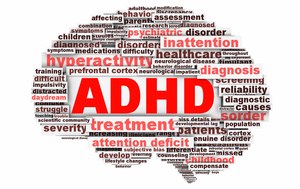ADHD’s Challenges and Controversies
Tuesday, May 16, 2017 6:00p -
7:30p
Where:
Boston Athenæum
10 ½ Beacon Street
Boston, MA 02108
Admission:
FREE
Categories:
< 21, Alcohol, Date Idea, Food, Lectures & Conferences, Meetup, Nightlife
Event website:
http://www.bostonathenaeum.org/events/4602/adhd%E2%80%99s-challenges-and-controversies
Attention Deficit Hyperactivity Disorder (ADHD) poses considerable challenges and provokes intense controversy surrounding its diagnosis, treatment, and frequency. There exists no objective biological or neuropsychological measure to define ADHD, making diagnosis a challenge, particularly for children, whose symptoms are often exaggerations of behaviors already typical in childhood. ADHD’s medical treatment raises concerns, both of misuse of drugs for their performance-enhancing properties, and of side effects of these drugs on young, developing brains. Still, perhaps the most controversial aspect of ADHD is its increasing frequency in the population. Current estimates qualify as many as 11% of children for an ADHD diagnosis, a 43% increase over the past decade. This rise fuels rampant debates over whether ADHD is overdiagnosed. Because ADHD can lead to substantial difficulties in school, work, family, and social activities, it is important to understand these controversies and meet the challenges that can improve the lives of many individuals and their families.
These topics will be discussed by a panel of experts, each of which brings diverse perspectives to ADHD, including a physician (Dr. Leonard Rappaport, Boston Children’s Hospital), an epidemiologist (Dr. Kathleen Merikangas, NIH), a neuroscientist (Dr. John Gabrieli, MIT), and a journalist (Alan Schwarz, author of "ADHD Nation").
John Gabrieli is Director of the Athinoula A. Martinos Imaging Center at the McGovern Institute for Brain Research at MIT. He holds faculty appointments in the department of brain and cognitive sciences and the Harvard-MIT division of health sciences and technology, where he is Grover M. Hermann Professor in Health Sciences and Technology. He co-directs the MIT Clinical Research Center and is associate director of the Athinoula A. Martinos Center for Biomedical Imaging, MGH/MIT, located at Massachusetts General Hospital. Before joining MIT, he spent 14 years at Stanford University in the department of psychology and neurosciences program. He holds a PhD in behavioral neuroscience in the department of brain and cognitive sciences and a BA in English from Yale University.
Leonard Rappaport is chief of the division of developmental medicine and senior associate at Boston Children’s Hospital and Mary Deming Scott Professor of Pediatrics at Harvard Medical School. He has directed the fellowships in general pediatrics and developmental and behavioral pediatrics for 30 years, training well over 100 fellows. He is principal investigator on one of 9 federally funded training programs in developmental and behavioral pediatrics. He completed his undergraduate degree in economics at the University of Pennsylvania and the London School of Economics, then received a master’s degree in education from the University of Pennsylvania, and began to teach in an alternative high school that was a joint effort of the University of Pennsylvania and Philadelphia Public Schools.
Kathleen Ries Merikangas is senior investigator and chief of the Genetic Epidemiology Branch in the Intramural Research Program at the National Institute of Mental Health. She holds a bachelor’s degree in experimental psychology and music from the University of Notre Dame, and received clinical training at the Western Psychiatric Institute and Clinic at the University of Pittsburgh School of Medicine, where she conducted clinical research while pursuing a PhD at the University of Pittsburg School of Public Health. Dr. Merikangas completed postdoctoral training in population genetics and genetic epidemiology at the Yale University School of Medicine, where she became a professor of epidemiology and public health, psychiatry, and psychology and the director of the Genetic Epidemiology Research Unit in the Department of Epidemiology and Public Health.
Alan Schwarz is a journalist best known for his coverage of public health issues for the New York Times. His 130-article series on concussions in sports is credited with revolutionizing the treatment of head injuries in professional and youth sports, and was a finalist for the 2011 Pulitzer Prize for Public Service. He followed that with a series on ADHD and other psychiatric disorders in children, which led to his writing "ADHD Nation." Schwarz is regarded as an expert on the use of mathematics and probability in journalism; his statistical analyses of data regarding both concussions and children’s mental health formed the backbone of both series. Schwarz was honored by the American Statistical Association in 2013 with its Lifetime Excellence in Statistical Reporting Award. He holds a BA in mathematics from the University of Pennsylvania and lives with his family in Manhattan.
Registration begins April 24 at 9 am.
To register, go to: https://bbd.bostonathenaeum.org/sslpage.aspx?pid=300
--
The Athenæum's five galleried floors overlook the peaceful Granary Burying Ground, and, as Gamaliel Bradford wrote in 1931, "it is safe to say that [no library] anywhere has more an atmosphere of its own, that none is more conducive to intellectual aspiration and spiritual peace." The building was designated as a National Historic Landmark in 1966.
-

SponsoredThe Boston Outdoor Expo 2024
Saturday, Apr 27, 2024 goes until 04/28
Boston Convention & Exhibition Center
-

SponsoredWBUR Earth Week Events
Thursday, Apr 25, 2024 goes until 04/26
WBUR CitySpace at The Lavine Broadcast Center
-

SponsoredHot Tub Meditation: Mindfulness & Chill Weekend Retreat
Friday, Apr 26, 2024 goes until 04/28
Killington

